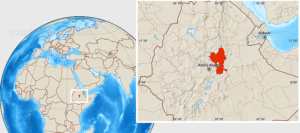
The electoral farce is one more time shown in Galiza, Spanish State
Last February 18 were the regional elections in Galiza, in the Spanish state, and once again it was shown that a large part of the broad masses reject elections and the electoral circus. These elections, which had an abstention rate of 32.69%, have been a “success” for the bourgeois parties, since the participation in the election has always been so low that one out of three people not voting is a “success” for bourgeois democracy. In the previous elections, the abstention rate was 41.12%, and 46.3% in the 2016 elections, showing why such bad results are so praised by the bourgeois parties. Servir al Pueblo says in this regard, “Logically, the bourgeoisie clamors as a victory that the turnout goes up to 67%, because as the Castilian proverb says, in the country of the blind, the king is the one-eyed man. They were so bad, so bad the turnout percentages, that when two out of three people turn out to vote, it is an absolute success.“
The Popular Party (PP) declared itself the winner of the elections, precisely because it was the party with the most votes and once again obtained an absolute majority in the regional parliament. However, as already happened in the general elections of July 23, 2023, if we take a good look at the numbers we can see that the option most chosen by the Galicians has been abstention. More than 725,000 people have decided to make this choice. Besides, these regional elections had been highly promoted by the bourgeois press, since the one who today is leader of the opposition, Alberto Feijoó, was the previous President of the Xunta de Galiza with absolute majority, and after not having achieved the Presidency of the General Government due to the lack of agreements, these elections were a test for his new leadership of the state PP, so the promotion in the newspapers and the press has been very prominent.
Servir al Pueblo adds: “Even with the whole media campaign the bourgeoisie has made to ask for the vote, one third of those called to vote do not trust bourgeois democracy. Can we say that those who do not vote trust it? Whether because of principles, because they do not find any choice among the parties that are presented, because of disillusionment, anger or whatever their reasons, there we have the objective fact: one third of those called to vote did not trust bourgeois democracy, and they did not vote.”

